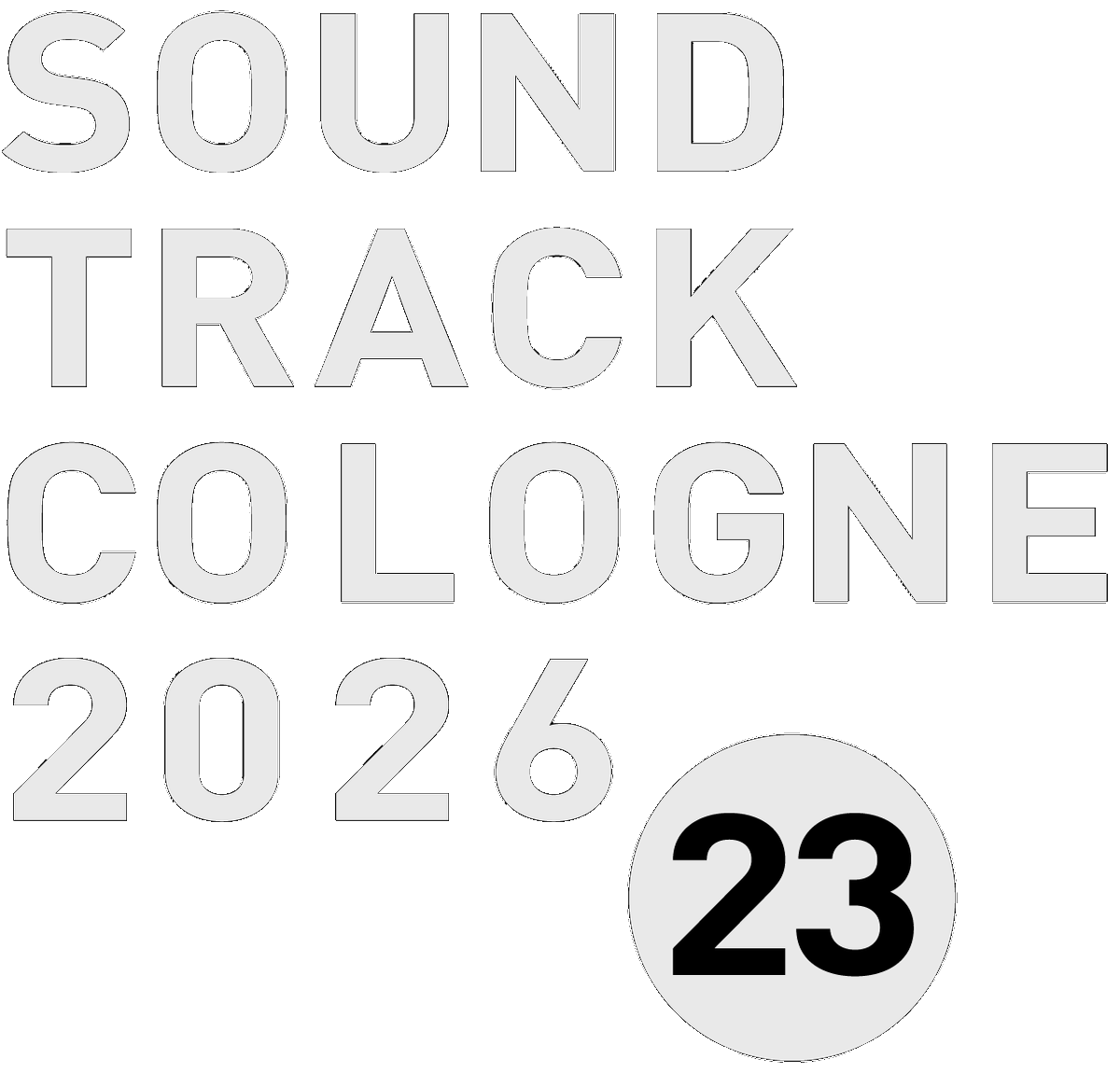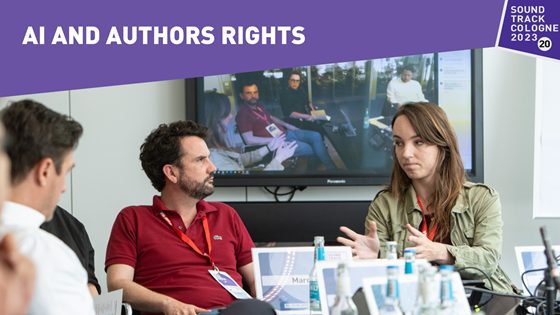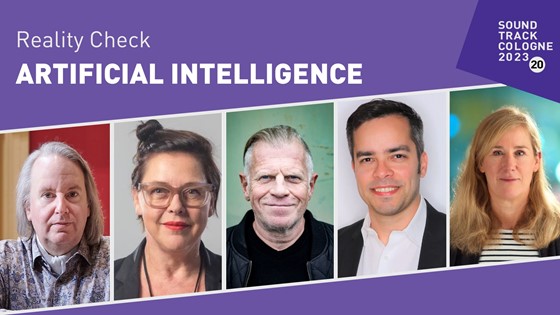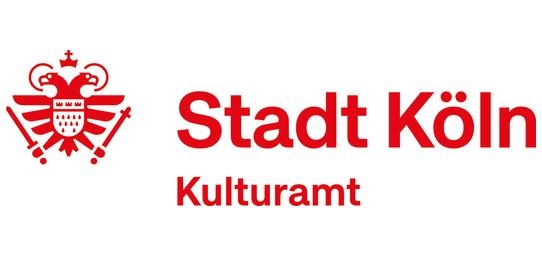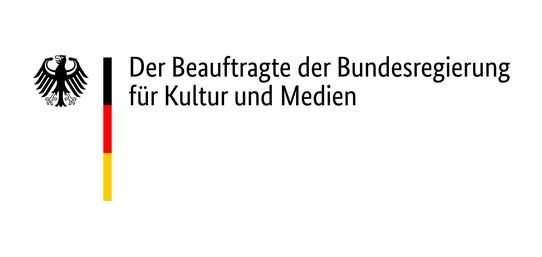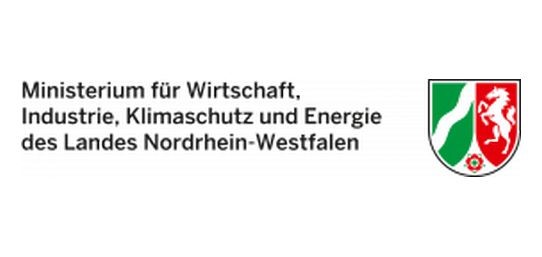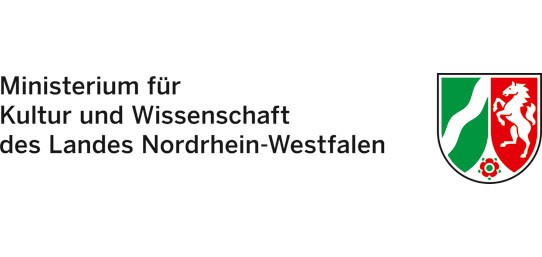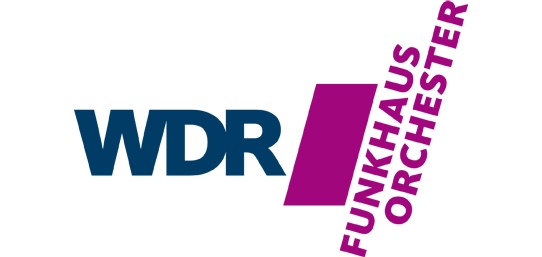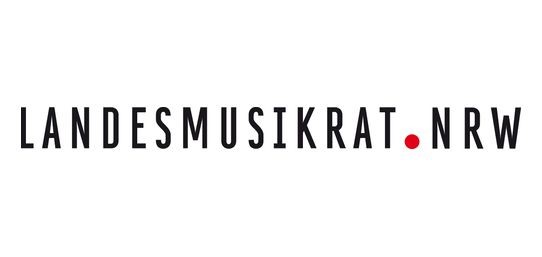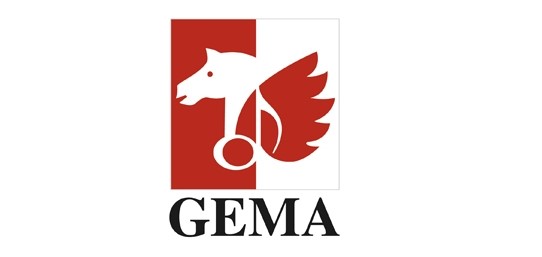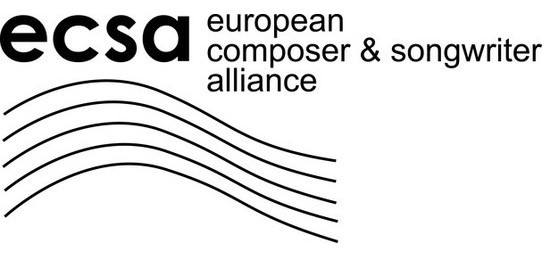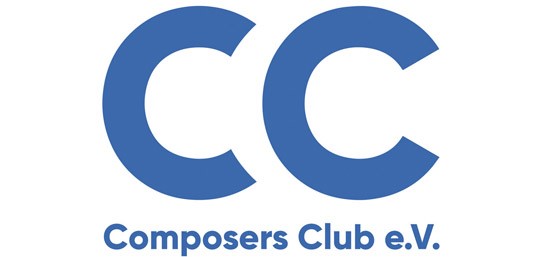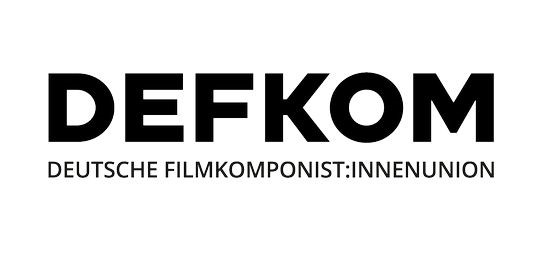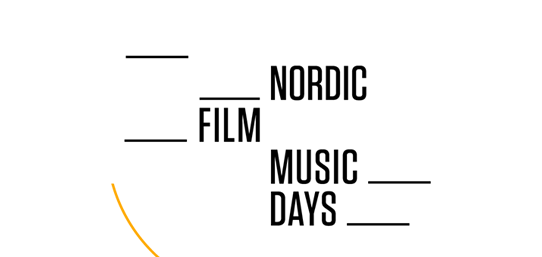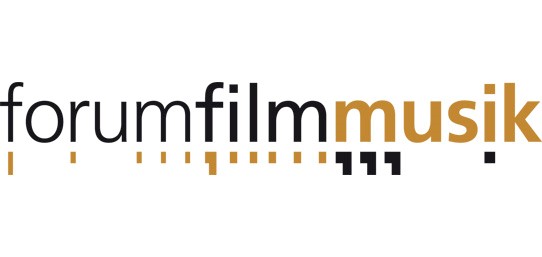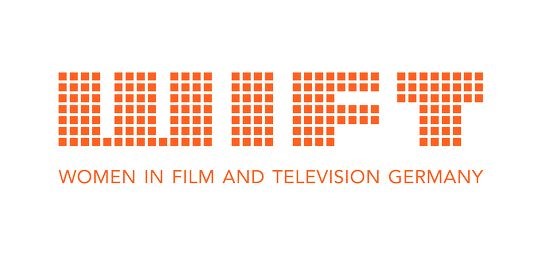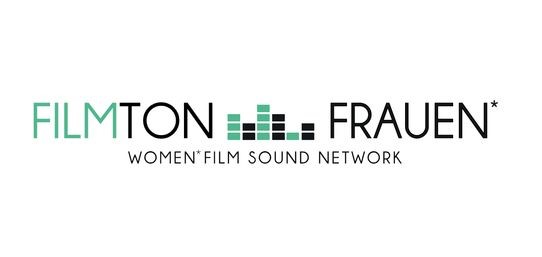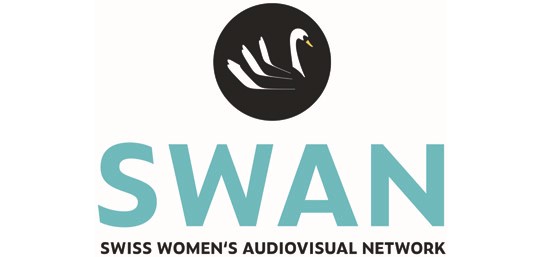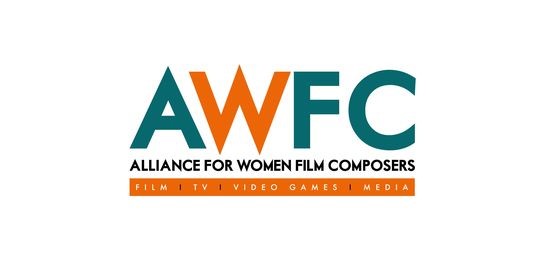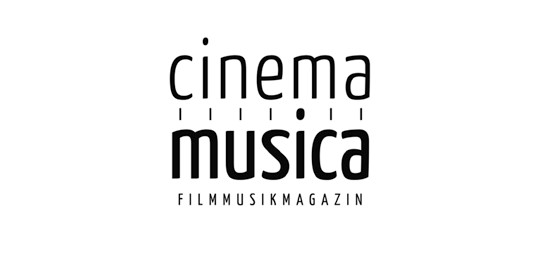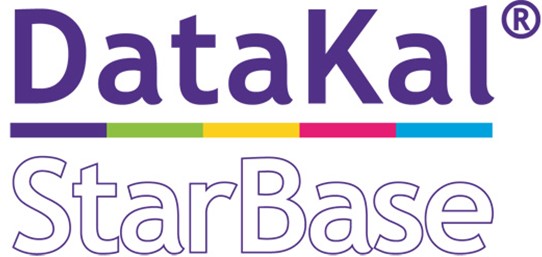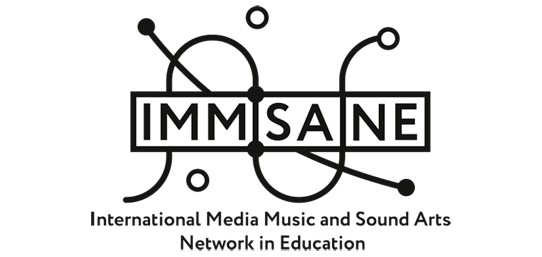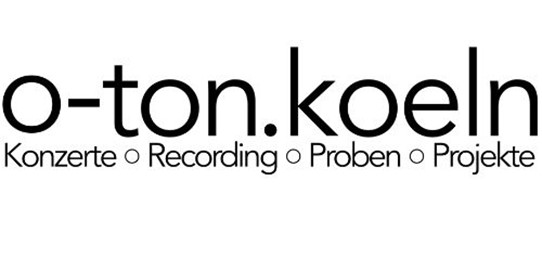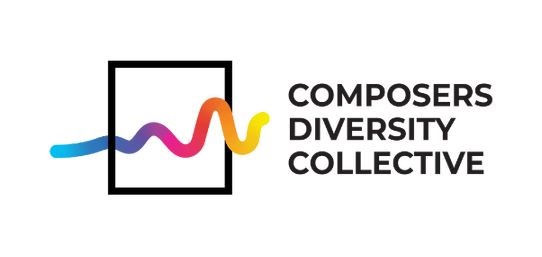SoundTrack_Cologne 20: Reality Check - Artificial Intelligence
The acronym AI has suddenly and overwhelmingly appeared in all the activities we know, but it is not so new. In music, it has been used with increasing prominence in fields such as composition, production, digital sound processing and selecting music. Its use, however, does not cease to raise many questions about the dilemmas between its attributes and the opportunities it allows but also the limits of creative experimentation, copyright, among others; therefore, SoundTrack_Cologne 20 will devote seven panels to address these matters.
_________________
Tuesday 20 June 2023
19:30 - 20:30
AI, authors' rights and personal rights
Matthias Hornschuh
AI and the new creative paradigm
Prof. Dr. Francisco Tigre Moura
Keynote speeches
Place: Fritz Thyssen Stiftung · Auditorium
_________________
Wednesday 21 June 2023
10:30 - 11:30
The Future of Sound and Music in Heathcare
John Groves and Oliver Graber
Workshop - Discussion
Place: Tanzschule Schulerecki
12:00 - 13: 00
AI and Author Rights: What Awaits Us?
Stefan Ellenberg, Marc du Moulin and Katharina Uppenbrink
Moderated by: Dr. Anselm Kreuzer
Workshop - Discussion
Place: Fritz Thyssen Stiftung · Helmut Coing Saal
_________________
Thursday 22 June 2023
Hybrid Production Music + AI - The New Business Modell
Michael Beckmann
Fack Ju Göhte 1 and 2 · Türkisch für Anfänger
Workshop - Discussion
Place: Tanzschule Schulerecki
12:00 - 13:00
The Future of Music with AI - Critical Questions on Creativity and Technology
Prof. Dr. Francisco Tigre Moura, Janne Spijkervet, Ali Nikrang and Ryan Groves
Workshop - Discussion
Place: Tanzschule Schulerecki
16:00 – 17:00
AI in Music Consulting
Corinna Poeszus and Milena Fessmann.
Moderated by: Dr. Anselm Kreuzer
Workshop – Discussion
Place: Fritz Thyssen Stiftung · Robert Ellscheid Saal
_________________
Friday 23 June 2023
12:00 – 13:00
Share your AI experiences with other AI users and present your own music and sounds created with the help of AI
Yevgeni Birkhoff
Moderated by: Michael Beckmann
Workshop – Discussion
Place: Tanzschule Schulerecki
____________________
During the opening ceremony of STC 20, two keynotes deal with AI: AI, authors' rights and personal rights, by Matthias Hornschuh, composer, head of mediamusic and member of the supervisory board of GEMA, and AI and the new creative paradigm from Prof. Dr. Francisco Tigre Moura, professor of marketing at IUBH University of Applied Sciences and researcher in artificial creativity, music and technology. The keynotes will be an introduction to the most relevant aspects of the application of AI in music as a preview of the workshops-discussions of the following three days.
Moderated by Prof. Dr. Francisco Tigre Moura, the panel The Future of Music with AI - Critical Questions on Creativity and Technology will delve into the philosophical side of AI and dilemmas such as psychological ownership and copyright, texts for music, recommendation platforms like Spotify, quantum computing and AI, and authenticity.
An ECSA Capacity Triangle Seminar titled AI and authors rights: what awaits us?, presented as part of the section Music Politics, will focus more deeply on the use of AI and its legal nature. How do music and AI interact with each other? How should we define ethical use of AI in music? Should AI-generated music be copyrighted? How should legislation approach these developments? During the panel, speakers will discuss the ins and outs of the proposed AI Act by the European Parliament, its link with text and data mining and the general interactions between AI, music and copyright.
In addition, the panel The Future of Sound and Music in Healthcare, with the composer Oliver Graber, co-director of the "Research Institute for Music-Medicine with a special focus on Arts for Health" in Vienna, and John Groves, composer, musician, and producer focused nowadays on the use of sound in a healthcare context, will also tackle the issue referring to AI-generated music for clinical use.
In its panel Hybrid Production Music + AI - The New Business Modell, Michael Beckmann will talk about hybrid licensing methods, which combine the creation of original, custom music with a catalogue of traditional library music under one licensing agreement, and which purpose is to meet the needs of a budget-conscious production while still delivering unique and original audiovisual music - with the help of AI. Beckmann will present the features of Gotmusic, a music library for productions that offers customers various ways to obtain high-quality music for their projects.
The use of AI in Music Consulting will also be an addressed topic in STC 20. A group of music supervisors will discuss to what extend they have come in using AI tools and how it has helped them.
Finally, in the interactive panel Update AI Tools, composers will share their AI experiences with other AI users and present their own music and sounds created with the help of AI.
SPEAKER
Matthias Hornschuh is a composer for film music and radio plays. Films and radio plays with his music have featured at almost all major international festivals and have received around 100 awards. He is politically active in the sector, in particular as founder and chairman of the professional association MediaMusic, as member of the supervisory board of GEMA and as spokesman for creative professionals at the Initiative Urheberrecht.
Prof. Dr. Francisco Tigre Moura is a professor of marketing at IUBH University of Applied Sciences (Germany). Since 2016 his research has focused on topics such as artificial creativity, music, technology experiences and general consumer behaviour. Some of his recent studies have focused on listeners' perceptions of artificially composed music.
John Groves is a British composer, musician, and producer who has specialised in Sound Branding and the use of sound and music in communications. Today he is focused on psychoacoustics and the use of sound in a healthcare context.
Oliver Peter Graber works internationally as a composer, pianist and dramaturge, leading interdisciplinary projects. He codirects the “Research Institute for Music-Medicine with a special focus on Arts for Health”.
Dr. Stefan Ellenberg is a certified lawyer for IP rights with over 15 years of experience in the entertainment industry. He currently serves as the Head of Business Affairs at the music and media law firm Gutsch & Schlegel in Hamburg.
Marc du Moulin is Secretary General of ECSA (European Composer and Songwriter Alliance). He has an in-depth understanding of the functioning of the creative industries and an extensive experience in European Affairs.
Katharina Uppenbrink has been the managing director of Initiative Urheberrecht (Authors’ Rights Initiative) since May 2014, and is also the head of the Association of German Screenwriters (VDD). She has worked for various publishing houses.
Dr. Anselm Kreuzer is a proven specialist for TV title music, station IDs, soundtracks for series and TV drama as well as music for new media and advertising. He sets soundtracks for series like In aller Freundschaft and Rosenheim-Cops.
Michael Beckmann is a renowned bassist, film composer and music consultant. He is co-founder of band Rainbirds and has written numerous successful chart productions and film scores, among them the German blockbusters Turkish for Beginners (Türkisch für Anfänger) and the three films in the Suck Me Shakespeer (Fack ju Göhte) series.
Janne Spijkervet is a music producer and artificial intelligence researcher who studies the notion of music and creativity with AI. Now, she works at TikTok's Speech, Audio and Music Intelligence R&D team, developing cutting-edge music technology at scale.
Ali Nikrang is an AI researcher and composer at the intersection of music and artificial intelligence. He is a professor of AI and musical creation at the University of Music and Theatre in Munich and a researcher at the Ars Electronica Futurelab in Linz. As a musician and AI researcher, he has been involved in numerous projects combining artificial intelligence and music.
Ryan Groves is an award-winning music researcher and veteran developer of intelligent music systems. Recently, he has been invited to give guest lectures and internal talks at prominent universities and music technology firms including Stanford and Utrecht universities.
Corinna C. Poeszus is a senior business executive with over 30 years experience in the music, digital media and film production, advertising and tv entertainment industries. She is the Chief Licensing Officer of Freque.io.
Milena Fessmann has worked as a full-time DJ. She works also as moderator of several national events and panels and teaches music supervising and copyright clearing at film schools such as DFFB Berlin. Fessmann is advisory board member of the World Soundtrack Academy and Member of the European Filmacademy.
Yevgeni Birkhoff works as a composer, music producer, and sound designer. He creates music for media and international large-scale event productions, composes and produces songs. Recently, Birkhoff has been engaging with real-time media and artificial intelligence. He regularly holds lectures and workshops, sharing his expertise in these cutting-edge fields.
